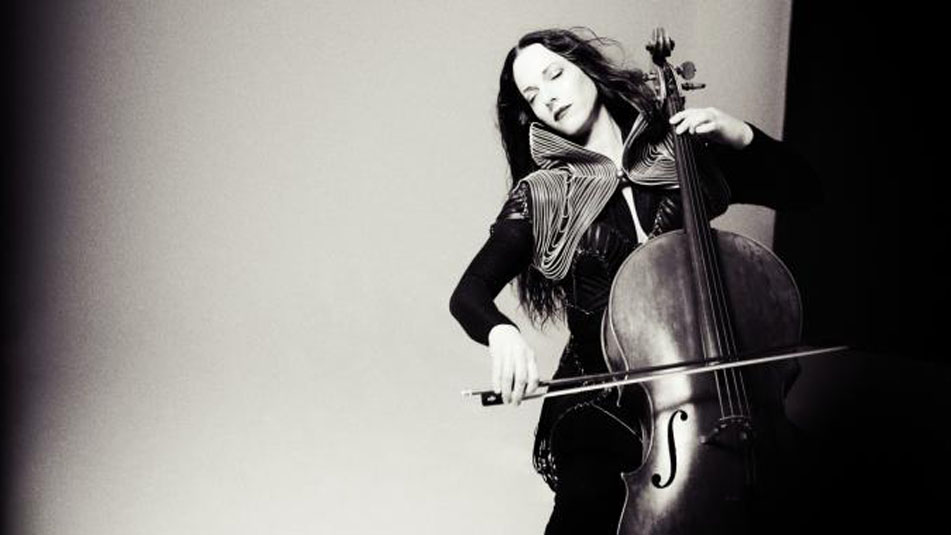MAYA BEISER & DAVID LANG
THE DAY & THE WORLD TO COME
July 22, 2016 | by Rusty Aceves

Maya Beiser
Called “the post-modern diva of the cello” by The Boston Globe, cellist Maya Beiser performs a pair of multi-media works by composer and Pulitzer Prize winner David Lang, including the World Premiere of his newest project, The Day. Israeli-born Beiser is the foremost cellist in contemporary classical music, whose 10-album discography encompasses a staggering musical range that embraces everything from Armenian folk music to the furthest extremes of the avant-garde. Her extensive résumé boasts a long history of collaboration with major composers Steve Reich, Brian Eno, Philip Glass, and Louis Andriessen, as well as memorable contributions as a soloist to the soundtracks composed by James Newton Howard for the films of M. Night Shyamalan, Denzel Washington, and Edward Zwick.
 With The Day, Lang uses the metaphor of a single day to examine the beginning light and eventual darkness of modern life, utilizing crowd-sourced texts culled from social media in conjunction with Beiser’s cello, spoken word, and video elements created by artist Irit Batsry. Talking about his inspiration for The Day, Lang says:
With The Day, Lang uses the metaphor of a single day to examine the beginning light and eventual darkness of modern life, utilizing crowd-sourced texts culled from social media in conjunction with Beiser’s cello, spoken word, and video elements created by artist Irit Batsry. Talking about his inspiration for The Day, Lang says:
“From Genesis to the Riddle of the Sphinx to the present time, a day has meant something more to us than the distance between sunrise and sunset. Because most of us rise in the morning and lie down in the evening the day is a convenient metaphor for all the days of our lives. The totality of the day includes both the light, shining on what we can see and know and feel, and the dark, hiding from us what we can’t see, can’t know, can’t feel. It is what happens in the dark, and after, that interests me.
The text for The Day is crowd sourced from the internet, searching the ways that ordinary people spend their days, as they rise, as they live, and as they fall. The text is arranged almost like a prism, with many conflicting facets of each action described and recounted from different vantage points, as we proceed from wakefulness to sleep.
In The Day we hear a recording of the texts, and they will be projected one by one, creating a rhythm that becomes the heartbeat beneath the emotionally charged playing of cellist Maya Beiser.”
Also on the program is their previous collaboration, 2003’s World to Come. Composed in response to Lang's personal experience of the events of September 11, 2001, World to Come employs Beiser’s cello and singing over a backing of multi-tracked recorded cellos in a work that ponders the irrevocable change that occurs when so many lives are present in one moment, then gone in an instant. With a title in reference to the Jewish concept of the afterlife (Olam Ha-Ba), the piece is a spiritual and ultimately uplifting journey that was not intended so much as a memorial or tribute to those who lost their lives that day, but instead considers the transition from life to death and the separation of souls from their earthly vessels. In an interview with the BBC, Lang talked about the work:
“It’s not a depressing piece, and it’s not about September 11th. I just really feel like I have to say this, because there are pieces which are about public mourning or common grief or trying to deal somehow with societal tragedy of that, and this piece is really something else. It’s really just looking around, going, 'These people were here, and now they’re not. Where are they?'”
